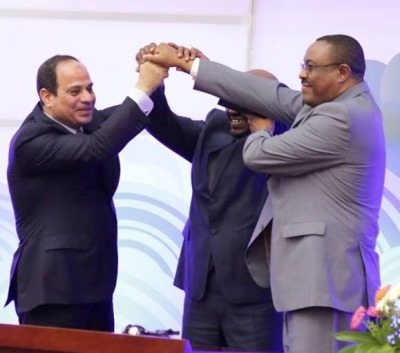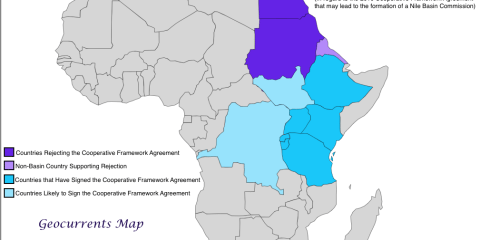“Segregation, isolation, separation, cellular, lockdown, Supermax, the hole, Secure Housing Unit (SHU)… whatever the name, solitary confinement should be banned by States as a punishment or extortion technique,” said today the United Nations Special Rapporteur on torture, Juan E. Méndez, to the UN General Assembly.
“Solitary confinement is a harsh measure which is contrary to rehabilitation, the aim of the penitentiary system,” the rights expert stressed presenting his first interim report* to the General Assembly. In it, he examines the practice of solitary confinement “which is global in nature and subject to widespread abuse.”
There is no universal definition for solitary confinement because the degree of social isolation varies with different practices. However, for the Special Rapporteur, it is “any regime where an inmate is held in isolation from others (except guards) for at least twenty-two hours a day.”
“Social isolation is one of the harmful elements of solitary confinement and its main objective. It reduces meaningful social contact to an absolute minimum,” Mr. Méndez said. “A significant number of individuals will experience serious health problems regardless of the specific conditions of time, place, and pre-existing personal factors”.
“Indefinite and prolonged solitary confinement, in excess of fifteen days, should also be subject to an absolute prohibition,” the expert said noting that scientific studies have established that some lasting mental damage is caused after a few days of social isolation.
The Special Rapporteur also called for an end to the practice of solitary confinement in pre-trial detention based solely on the seriousness of the offense alleged, as well as a complete ban on its use for juveniles and persons with mental disabilities.
“Considering the severe mental pain or suffering solitary confinement may cause,” Mr. Méndez warned, “it can amount to torture or cruel, inhuman or degrading treatment or punishment when used as a punishment, during pretrial detention, indefinitely or for a prolonged period, for persons with mental disabilities or juveniles.”
Solitary confinement for shorter terms or for legitimate disciplinary reasons can also amount to cruel, inhuman or degrading treatment or punishment where the physical conditions of prison regime (sanitation, access to food and water) fail to respect the inherent dignity of the human person and cause severe mental and physical pain or suffering.
“Solitary confinement should be used only in very exceptional circumstances, for as short a time as possible,” the independent expert emphasized. “In the exceptional circumstances in which its use is legitimate, procedural safeguards must be followed. I urge States to apply a set of guiding principles when using solitary confinement.”
In his view, “States should also follow internal and external safeguards in order to provide the greatest possible protection of the rights of detained individuals when solitary confinement is used.”
Juan E. Méndez (Argentina) was appointed by the UN Human Rights Council as the Special Rapporteur on torture and other cruel, inhuman or degrading treatment or punishment on 1 November 2010. He is independent from any government and serves in his individual capacity. Mr. Méndez has dedicated his legal career to the defense of human rights, and has a long and distinguished record of advocacy throughout the Americas. He is currently a Professor of Law at the American University – Washington College of Law and Co-Chair of the Human Rights Institute of the International Bar Association.
Source: Office of the High Commissioner for Human Rights of the United Nations – UN Special Rapporteur on torture calls for the prohibition of solitary confinement – Oct. 18, 2011.
**********
Note that: Ethiopian prisons sometimes impose solitary confinement on prisoners, according media reports.
The Revised Criminal Code of 2004 of Ethiopia permits solitary confinement, on Article 112 (1), as follows:
The prison administration may, whenever it appears necessary so to do, impose solitary confinement at the beginning or in the course of the execution of the sentence for a maximum of three months. Before imposing solitary confinement the prison administration shall determine the measure and duration of such confinement after consultation with a medical doctor and, where necessary, a psychiatrist.
However, the Criminal Code also prescribes, on Art. 109, that:
Regulations relating to prisons shall provide for the manner of execution of sentences, the admission to prison, the segregation of prisoners, the contact of prisoners with persons outside, the internal discipline in the prisons, and for the education and spiritual welfare of the prisoners.
Nonetheless, I am not aware of any regulation or directive laying down the conditions under which solitary confinement could imposed. Thus, it seems the Prison Administrators are given a blank cheque.
Check the Human rights archive for related posts.




I’m impressed, I have to say. Really hardly ever do I encounter a blog that’s both educative and entertaining, and let me let you know, you could have hit the nail on the head. Your concept is outstanding; the problem is something that not sufficient persons are talking intelligently about. I’m very pleased that I stumbled throughout this in my seek for something referring to this.
I agree with you 100% Daniel. Prison is about rehabilitation not behavior shaping. If we keep these inmates in these conditions they possess no chance of living effectively in our world, and we will keep wasting our tax dollars putting them back in the system.
faggggggg
Thanx very much for the feedback.
I didn’t see that regulation to date.
Keep in touch.
The regulation is “TREATMENT OF FEDERAL PRISONERS REGULATIONS NO. 138./ 2007.” It imposes two types of solitary confinement:
1) Solitary confinement for not less than eight days and for not more than two months if the prisoners commits Offenses entailing simple penalties
2) Solitary confinement for not less than two months and for not more than four months if the prisoner commits Offenses entailing rigorous penalties
In both cases solitary confinement is imposed as a disciplinary measure.
Except for these provisions, the regulation is too generous and (as to me), if strictly implemented may transform a prison house in to a restaurant.
you can get the regulation on the following link. http://chilot.wordpress.com/2011/04/18/treatment-of-federal-prisoners-regulations-no-138-2007/